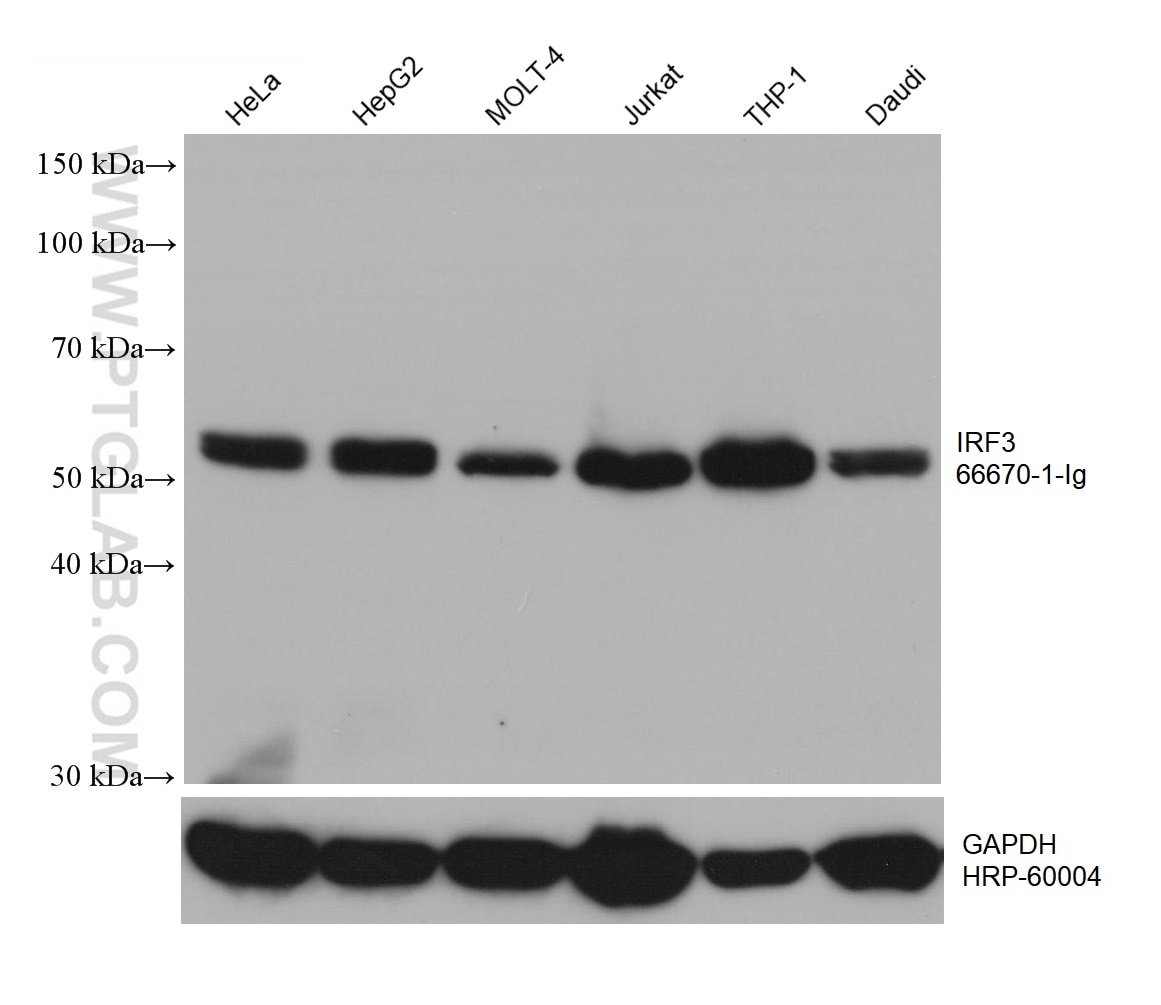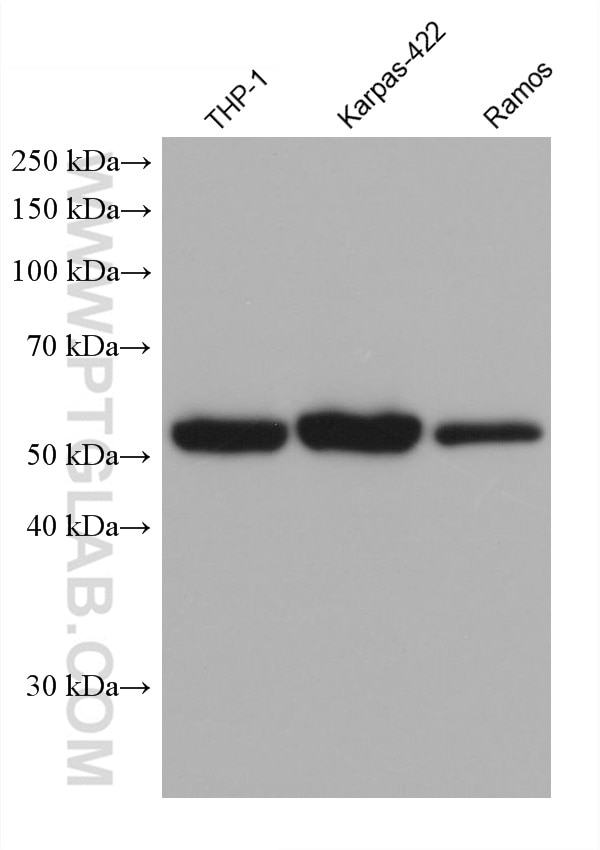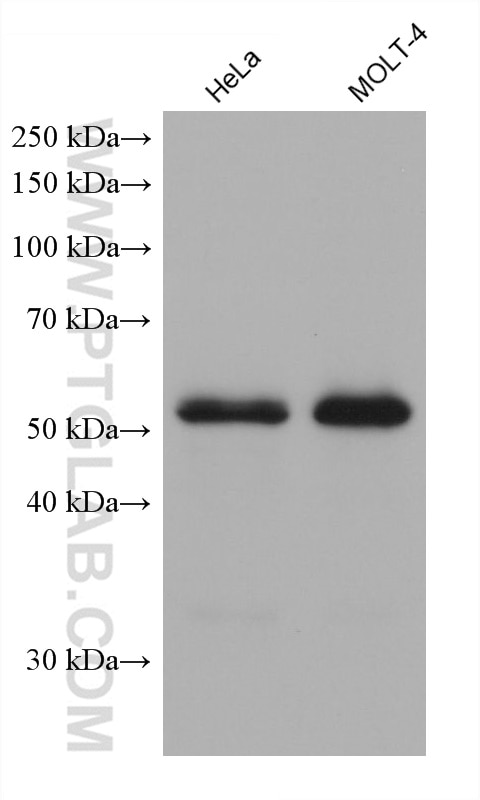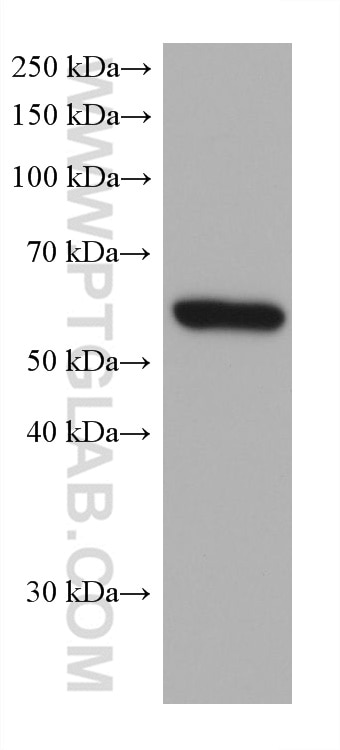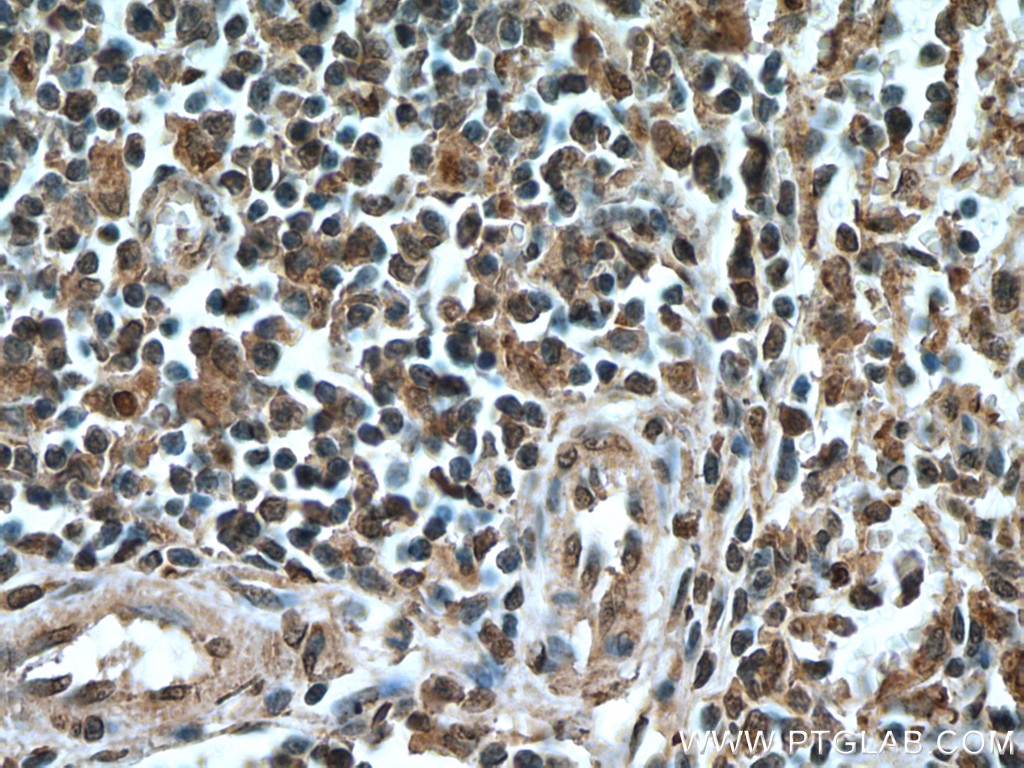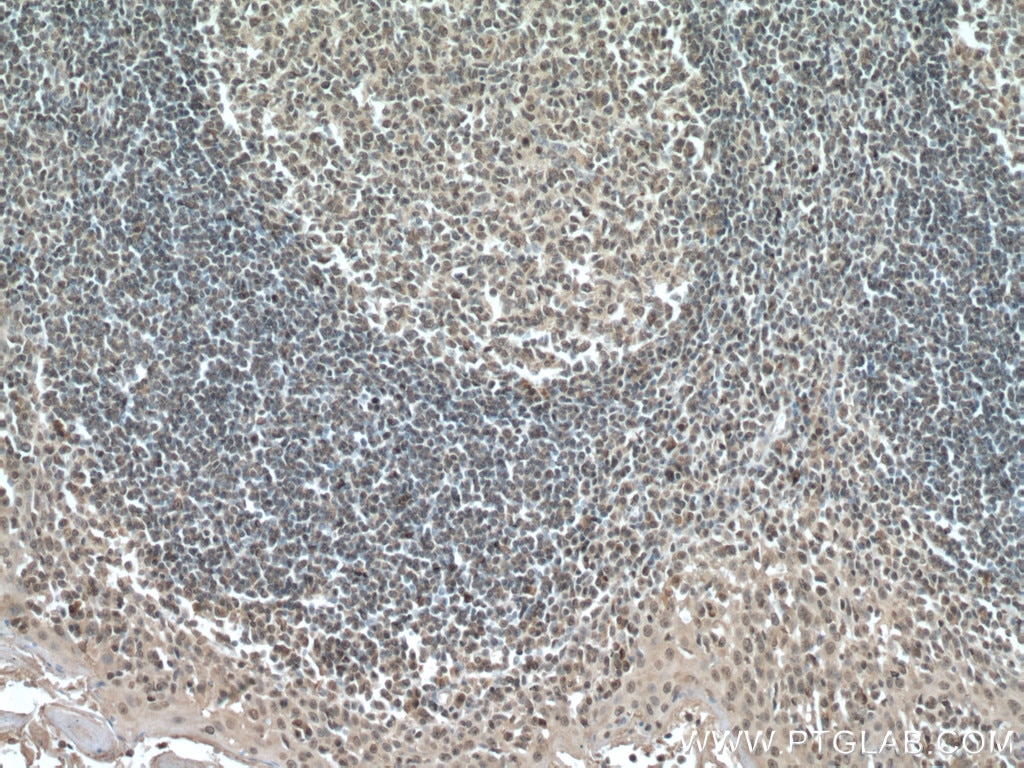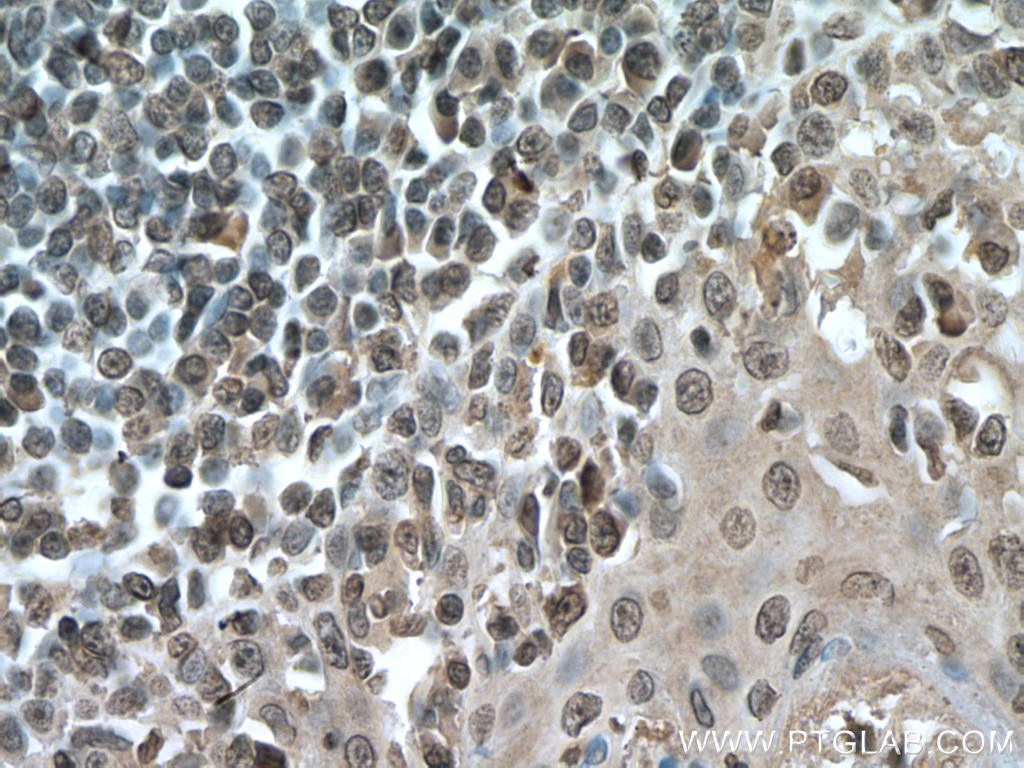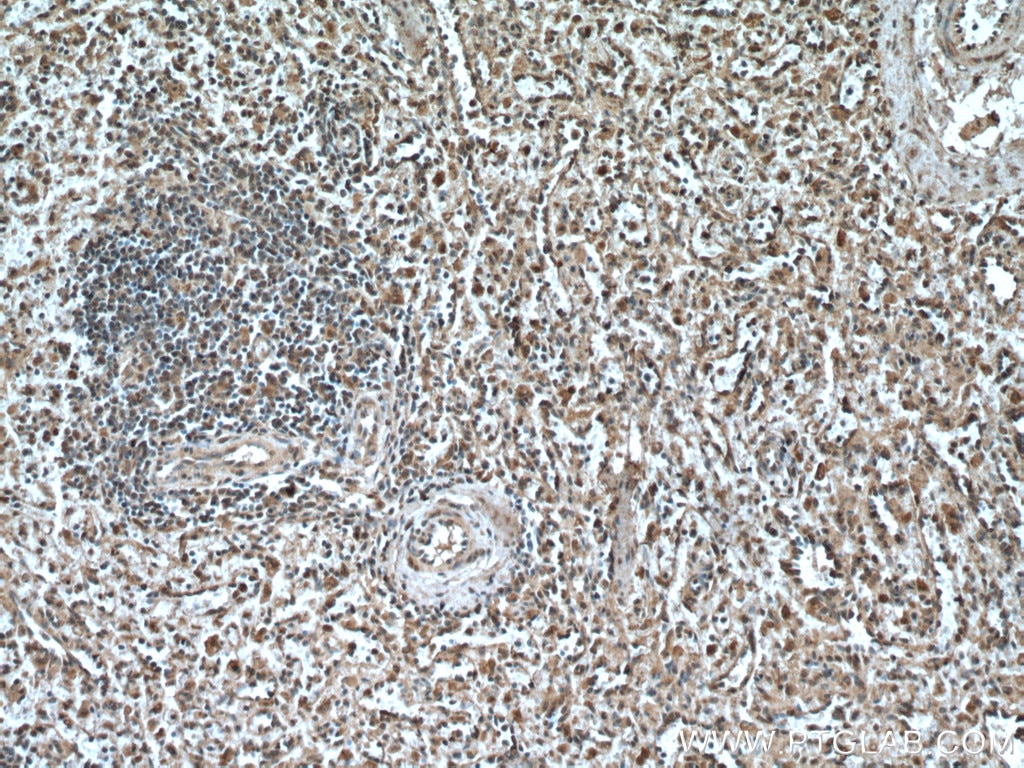Validation Data Gallery
Tested Applications
Recommended dilution
| Application | Dilution |
|---|---|
| It is recommended that this reagent should be titrated in each testing system to obtain optimal results. | |
Product Information
66670-1-PBS targets IRF3 in WB, IHC, ELISA applications and shows reactivity with human samples.
| Tested Reactivity | human |
| Host / Isotype | Mouse / IgG1 |
| Class | Monoclonal |
| Type | Antibody |
| Immunogen |
CatNo: Ag27223 Product name: Recombinant human IRF3 protein Source: e coli.-derived, PET28a Tag: 6*His Domain: 1-452 aa of BC009395 Sequence: MGTPKPRILPWLVSQLDLGQLEGVAWVNKSRTRFRIPWKHGLRQDAQQEDFGIFQAWAEATGAYVPGRDKPDLPTWKRNFRSALNRKEGLRLAEDRSKDPHDPHKIYEFVNSGVGDFSQPDTSPDTNGGGSTSDTQEDILDELLGNMVLAPLPDPGPPSLAVAPEPCPQPLRSPSLDNPTPFPNLGPSENPLKRLLVPGEEWEFEVTAFYRGRQVFQQTISCPEGLRLVGSEVGDRTLPGWPVTLPDPGMSLTDRGVMSYVRHVLSCLGGGLALWRAGQWLWAQRLGHCHTYWAVSEELLPNSGHGPDGEVPKDKEGGVFDLGPFIVGSWAPRSDYLHGRKRTLTTLCPLVLCGGVMAPGPAVDQEARDGQGCAHVPQGLGRNGPGRGCLLPGEYCGPAHFQQPPTLPHLRPVQGLPAGLGGGHGFPGPWGDLSPRSSWCASNPPVPHHLNQ 相同性解析による交差性が予測される生物種 |
| Full Name | interferon regulatory factor 3 |
| Calculated molecular weight | 47 kDa |
| Observed molecular weight | 50-60 kDa |
| GenBank accession number | BC009395 |
| Gene Symbol | IRF3 |
| Gene ID (NCBI) | 3661 |
| RRID | AB_2882024 |
| Conjugate | Unconjugated |
| Form | |
| Form | Liquid |
| Purification Method | Protein G purification |
| UNIPROT ID | Q14653 |
| Storage Buffer | PBS only{{ptg:BufferTemp}}7.3 |
| Storage Conditions | Store at -80°C. |
Background Information
The virul-induced expression of interferon(IFN) genes in infected cells implicate in the interplay of several constitutively expressed and virus-activated transcription factors. A family of IFN regulatory factors(IRFs) have been shown to has a role in the transcription of IFN genes as well as IFN-stimulated genes. IRF3 is a novel key transcriptional regulator of type I IFN-dependent immune responses and involves in the innate immune response against DNA and RNA viruses, by binding to the promoters of IFN. It located in the cytoplasm of uninfected cells in an inactive form, and following viral infection, double-stranded RNA (dsRNA), or toll-like receptor (TLR) signaling, could be phosphorylated by IKBKE and TBK1 kinases. This induces a conformational change, leading to its dimerization, nuclear localization and association with CREB binding protein (CREBBP) to form dsRNA-activated factor 1 (DRAF1), a complex which activates the transcription of the type I IFN and ISG genes.

